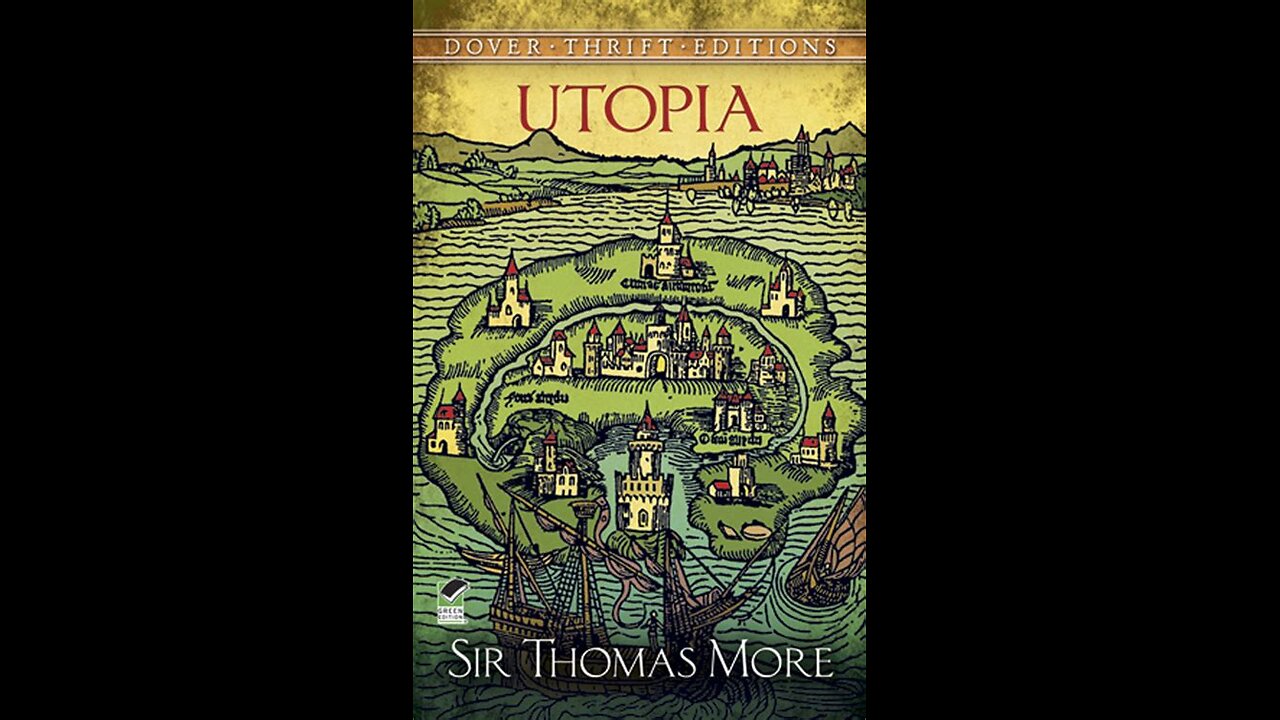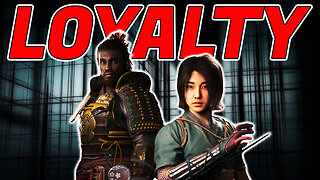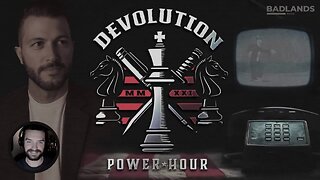Premium Only Content

Utopia by Thomas More | Summary and Critique
Buy Here: https://amzn.to/40oFZsy
"""Utopia"" is a book written by Thomas More and published in 1516. It is a work of political philosophy and satire that depicts an ideal society on an imaginary island called Utopia. The book is structured as a dialogue between More and a fictional character named Raphael Hythloday, who describes his experiences and observations of the Utopian society.
In ""Utopia,"" More presents an alternative vision of social and political organization. The Utopian society is portrayed as an egalitarian and communistic community, where private property is abolished, and all goods are held in common. The Utopians prioritize the common good over individual interests and live a simple and frugal lifestyle.
The society described in ""Utopia"" is also characterized by a strong emphasis on education and intellectual pursuits. The Utopians value knowledge and believe in the importance of intellectual development for their citizens. They have a system of compulsory education and encourage lifelong learning.
Another notable aspect of the Utopian society is its system of governance. It is described as a republic with elected officials who serve for a limited period. However, the Utopians have a strong belief in religious tolerance and allow multiple religions to coexist peacefully within their society.
Critics of ""Utopia"" have highlighted various concerns. Some argue that the Utopian society depicted by More is impractical and unrealistic. The abolition of private property and the reliance on communal living may be seen as an idealistic vision that neglects the complexities of human nature and the motivations that drive economic activity.
Others have criticized the Utopian society for its lack of individual freedom and the potential for conformity. The strict regulations and communal lifestyle may be viewed as stifling individual creativity and personal expression.
Moreover, ""Utopia"" has been criticized for its potential to justify authoritarianism. The society portrayed in the book requires a high level of control and regulation by the state to maintain its communal structure. Critics argue that such a level of state control can lead to a loss of individual liberties and the potential for oppressive governance.
Despite the criticisms, ""Utopia"" remains a significant work that has sparked ongoing discussions on social and political organization. It has influenced subsequent utopian literature and political thought, and its name has become synonymous with idealized visions of a better society.
In summary, ""Utopia"" by Thomas More is a work of political philosophy and satire that depicts an ideal society on an imaginary island. The book presents a vision of communal living, religious tolerance, and a strong emphasis on education. While ""Utopia"" has faced criticisms for its practicality and potential limitations on individual freedom, it remains an influential work that continues to stimulate discussions on societal ideals and governance."
-
 11:03
11:03
WhaddoYouMeme
14 hours agoFamous Pastor Dies in an “Accident”—But Was It?
1192 -
 12:20
12:20
The Official Steve Harvey
15 hours agoStephen A. Smith Gets Real About Haters – Steve Harvey Reacts
547 -
 9:14
9:14
ARFCOM News
15 hours agoDEA Merging W/ ATF?!? | ATF Raids 3D2A Enjoyers | DoJ To Sue DC?
1865 -
 13:27
13:27
IsaacButterfield
1 day ago $0.22 earnedVEGAN BOOTY “RACIST”
1.33K20 -
 16:31
16:31
RealReaper
10 hours agoThe Last of Us S02E01 Weak Men and Annoying Girlbosses
1.56K7 -
 18:10
18:10
Degenerate Jay
11 hours ago $0.15 earnedIs This Ruining Assassin's Creed? - The Brand Loyalty Problem
2.84K -
 50:46
50:46
Esports Awards
16 hours agodGon on Korean League of Legends Dominance, Working the LCS & 2025 Predictions | Origins Podcast #4
4.02K -
 12:48
12:48
T-SPLY
15 hours agoDemocrats Keep Digging Their Own Hole Over El Salvadorian Prisoners
28.5K63 -
 2:55:26
2:55:26
FreshandFit
10 hours agoLuke Belmar ROASTS Girls For Being High And Unmarried!
108K97 -
 2:16:58
2:16:58
Badlands Media
10 hours agoDevolution Power Hour Ep. 348: Culture War Cage Match – Trump, UFC, and Narrative Warfare
87.7K35